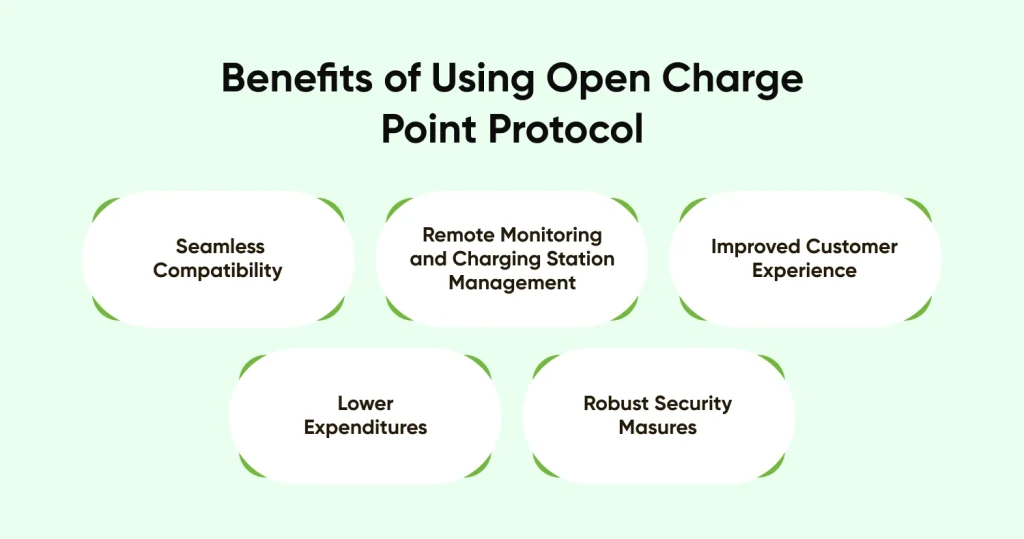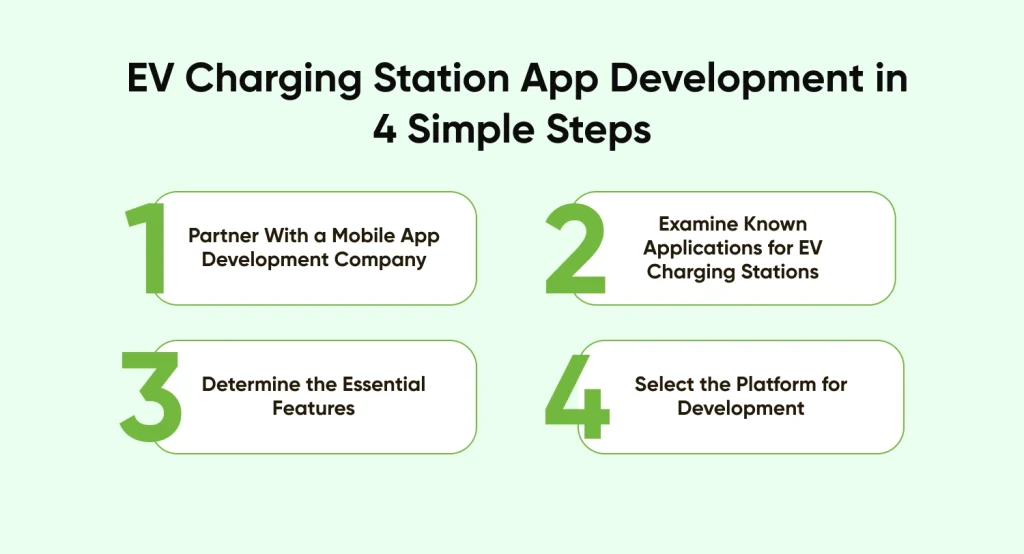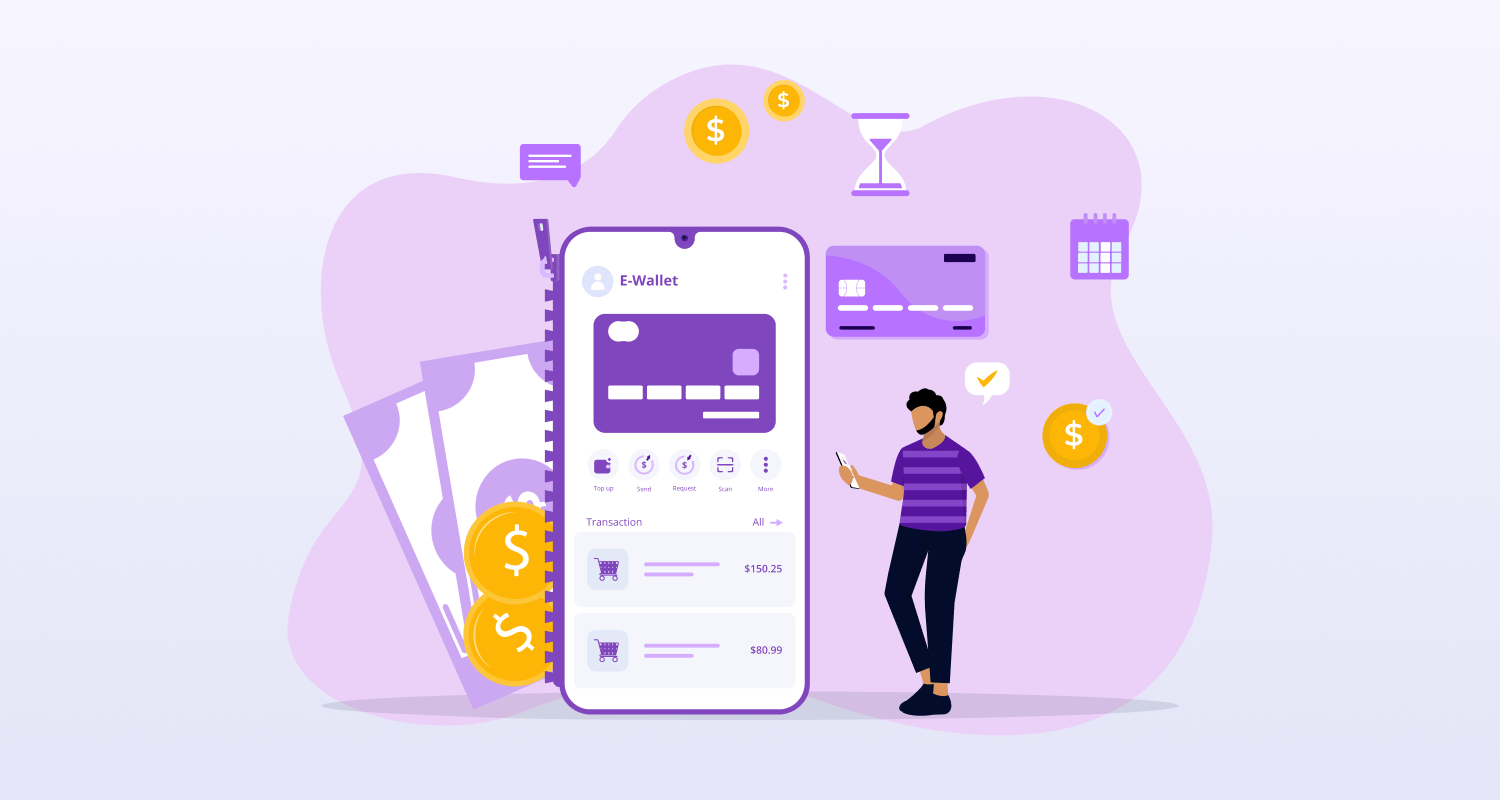An ever more critical requirement is flawless communication and interoperability across networks and charging stations as the infrastructure supporting EVs continues to grow. The Open Charge Point Protocol (OCPP) and the Open Charge Point Interface (OCPI) are two important protocols in the realm of EV charging that each has a specific function to play in guaranteeing effective charging operations and a user-friendly experience.
One important factor in resolving the issues with charging EVs at charging stations is the Open Charge Point Protocol (OCPP). It has been effective in establishing a standardized and interoperable system that enables smooth communication between various central management systems and charging station makers and operators.
In this blog, we’ll walk you through every little aspect of the OCPP protocol integrating for EV chagrin in mobile apps.
What is the OCPP Central System?
The communication protocol known as OCPP controls how charging stations and a central backend server communicate. Charge Point Operators (CPOs) need this two-way communication system to register new customers, manage charging sessions, and process payments. OCPP ensures that communication between the charging station and the central backend is seamless when a charging session begins or ends, when users need to be authorized using RFID cards or QR codes, and when transaction data has to be sent.
Envision “Chargem,” a California-based Charge Point Operator (CPO) who manages a network of 5,000 charging stations. A Chargem station must connect with Chargem’s centralized backend server to register a charging session started by an electric vehicle driver, handle payments, and monitor the charging process. The Open Charge Point Protocol (OCPP) is useful in this situation.
A reliable two-way communication channel is established between the charging station and the backend server by OCPP. It guarantees that charging sessions begin and terminate as planned, user registrations are appropriately documented, and payments made using RFID cards or QR codes are handled smoothly.
How Integrating OCPP with Mobile Apps for EV can be Implemented?
First, check the tech stack of the EV Charging App OCPP Integration. Let’s first examine how and what is involved in providing smart charging.
There are two types of smart charging: very basic and very complicated. Most applications will eventually need a more complex strategy. The primary cause of this is that drivers anticipate a quick and easy process. Stated differently, charge quickly as needed or slowly and affordably if at all feasible.
Additionally, fully linked cars that can interface with cloud-based services or charging stations are becoming closer.
It is not enough to just add OCPP software or EV solution when your business has developed its own mobile apps or central charging system. Advanced algorithms are used in real-time control software for smart EV charging. It is completely different from IoT systems that link to charging hardware and UX/UI-driven applications.
For these reasons, we at Ampcontrol have focused on creating cutting-edge smart charging solutions for fleet operators and charging station operators (CPO). These apps are simple to integrate with current systems, and you maintain complete control over the smart charging system that coordinates the EV points or vehicles.

Because it guarantees compatibility across various charging stations and EVs, regardless of manufacturer, OCPP compliance is crucial for EVs and EV chargers. This implies that EV users can use any OCPP-compliant charging station, and charging station operators can use any OCPP-compliant software to run their stations. The headline “Benefits of OCPP” will help you better understand the substance of its compliance.
Benefits of Using Open Charge Point Protocol

Seamless Compatibility
Easy communication between EV charging management systems and OCPP-enabled EV charging equipment from different manufacturers is possible because of seamless compatibility and interoperability. Furthermore, regardless of the particular hardware or software used, they can communicate with each other without any issues.
Remote Monitoring and Charging Station Management
Charge Point Operators (CPOs) can now remotely monitor and control their charging stations’ operations, thanks to this protocol’s introduction. The operators can manage charge sessions through on/off switching, real-time troubleshooting, and energy consumption monitoring.
Improved Customer Experience
By providing their clients with a variety of payment alternatives, CPOs may simply handle customer accounts and billing using OCPP. YoCharge hopes to provide an easy-to-use mobile app for EV charging with the aid of this protocol, making it easier to find, use, and pay for EV charging services.
Lower Expenditures
By reducing the requirement for human maintenance, OCPP lowers expenditures. In addition, it helps make effective use of the infrastructure for charging and uses tariffs and pricing to increase revenue. This protocol generates real-time data based on usage patterns during peak and off-peak hours, which aids in pricing strategies. Energy costs and supply constraints are additional factors that influence dynamic pricing.
Robust Security Measures
The Open Charge Point Protocol developers constantly update the protocol’s security mechanisms, such as authentication and encryption. This protects private information from being accessed by unauthorized parties, data breaches, and information manipulation.
EV Charging Station App Development in 4 Simple Steps

The popularity of electric cars is rising, but so is “range anxiety,” or the fear that a driver’s battery may run out. Here, EV charging station apps come in handy, assisting users in finding outlets and relieving their worries. There is a lot of demand for these apps, so let’s look at how to make your own!
Step 1: Examine Known Applications for EV Charging Stations
In the EV market, there are two kinds of apps: third-party and brand-specific. Recognize the features they provide and the gaps in the market to develop a superior app and take market share.
The best EV charging station apps available right now are listed below.
1. PlugShare
PlugShare is a widely used global forum among electric vehicle owners across the globe. Finding charging stations is made easier with its user-friendly design, which includes information on station type, availability, user reviews, and photographs.
It is a useful tool for organizing lengthy travels. To ensure they don’t run out of battery, drivers can determine how many stations are along their route and select the ideal one. They can even locate EV charging outlets close to restrooms, parks, and restaurants.
But PlugShare isn’t only meant for the general public. Additionally, businesses may connect with and advertise to EV drivers worldwide with the use of this app.
2. ChargePoint
ChargePoint is a very flexible EV charging app, in contrast to others. It is not limited to iOS and Android smartphones. The program is accessible to users. By integrating the app with the consumers’ preferred payment method, ChargePoint further simplifies the payment process. It works with Google Pay, PayPal, and Apple Pay. Users don’t have to wait for their opportunity, which is the nicest part. ChargePoint keeps track of the availability and usage of local charging stations.
3. Statiq
Find, Bill, and Pay. Statiq claims as much about their EV charging app. Via the app itself, customers can find, reserve, and even make payments. Statiq is simple to use for drivers of trucks and taxis in addition to owners of electric cars.
4. EVgo
The app for finding nearby EV charging stations is paid. Before arriving at the station, users can even schedule the session. Moreover, it enables them to look for stations using charger types and connectors. Additionally, it keeps an eye on the charging session and shows the activity on the app’s dashboard. It provides information about the next refill station along the way as well.
5. EZ Charge by Tata Power
Tata Power EZ Charge is among the top EV charging applications available in India. It can power electric vehicles on the fly thanks to its best-in-class technology. Users may swiftly charge their vehicles with its locate, connect, charge, pay, and go feature.
For quick charging, the Tata Power EZ Charge business card is also linked to the app. To begin and stop charging, just tap the card. Even a card or app can be used to make payments.
Step 2: Determine the Essential Features
The following crucial elements are shared by all of these top EV charging station apps:
- A station locator that filters neighboring stations using Google Maps integration.
- Information on the station, including costs, charging types, connectors, and speeds.
- Accounts for users to manage their profiles.
- Integration of payments for safe and efficient payments.
- The dashboard displays charging session information and charging history.
- Alerts in real-time about the state of battery charging and the locations of nearby charging stations.
- Reserve a time slot in advance at the closest station.
- Use the trip planning option to find the stations along the way with ease.
Step 3: Select the Platform for Development
You can create an iOS app or an Android app for an EV charging station. You have an option, however we suggest using a cross-platform mobile application.
This lowers your development expenses and increases your consumer base.
Step 4: Partner with a Mobile App Development Company
Look for a mobile app development business that has experience with both iOS and Android development. Since Google Maps and payment gateways are necessary features, they should likewise be able to incorporate them.
To outperform your rivals, your mobile app’s appearance and feel are equally crucial. Thus, hire AWS Lambda developers who also have the greatest UI/UX design team, who are creative and fully aware of your design specifications.
Test the mobile application thoroughly after development is complete, which should take a few months. Before deployment, there shouldn’t be any defects or faults in it.
Built OCPP for Drivers App
Businesses can create intricate user apps for their charge point locations with the help of OCPP. User apps are used to handle payment processes, share data with EV drivers, and verify EV drivers.
When electric vehicle drivers first started using them, using public charging stations was an unpleasant experience. Since charge points are now connected to user dashboards and mobile apps via OCPP, the majority of the issue has been resolved. These days, charging an electric car is as easy as visiting a petrol station.
Because software developers can concentrate on the user experience and don’t have to worry about communication to the charging point, OCPP has been a big driver for mobile apps.
Conclusion
Our goal was to give a general overview of developing an EV charging system for both personal and business use. OCPP has improved the effectiveness and convenience of EV charging systems for both service providers and EV owners. Hire mobile app developers to facilitate the development, configuration, and management of OCPP system components such as jobs, certificates, rules, and policies.
The best technological partner for developing and executing OCPP solutions for your company is none other than us. We have already provided specialized OCPP EV solutions to several clients. With a wealth of knowledge, our team of professionals is adept at creating and implementing mobile app development services quickly. We can provide you with top-notch development facilities and assist you in achieving your dream. Grab the opportunity to experience the best and enhance your business.
Frequently Asked Questions
Is There a Universal EV Charging App?
Utilise unique app filters to quickly locate charging locations worldwide, along with information on connectors and charging speeds. Find out all you need to know before you arrive at a station, from pricing to driver advice to photos.
How Does OCPP Integration Benefit My EV Charging Mobile App?
Remote access is one benefit that OCPP offers to operators of EV charging networks. From wherever they can keep an eye on and control their charging stations. The backend system can monitor the voltage level reading and charge point status of each phase thanks to this protocol.
How Can I Integrate OCPP with My EV Charging Mobile App?
The procedure is easy to follow:
The vehicle and the charging station are connected.
You send the authentication request to your OCPP backend.
An API call to Ampcontrol is triggered by this.
You may get the charging profile from Ampcontrol.
What Challenges Might I Face During OCPP Integration?
Complex Implementation of OCPP.
Compatibility and Interoperability.
Regulatory Compliance.
Barriers and Network Fragmentation.
Enter the Open Charge Point Interface (OCPI).







